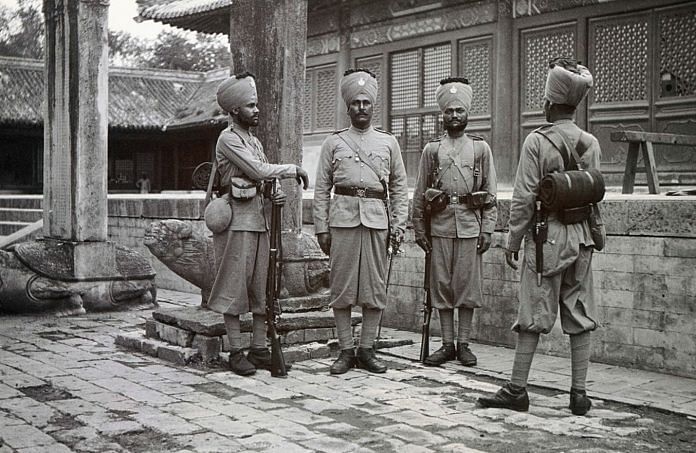Self-published by Thakur Gadadhar Singh in 1902, English translation of ‘Chin Me Terah Mas’ will be released in October.
Thakur Gadadhar Singh was a British Indian soldier who achieved modest fame as a writer after he self-published his first book in 1902, ‘Chin Mein Terah Mas’, or ‘Thirteen Months in China’. Part of the Oxford Series on India-China Studies, an annotated translation of Singh’s book will be released next month.
Edited by Anand A. Yang and translated from Hindi by Yang, Kamal Sheel and Ranjana Sheel, the book is a detailed account of Singh’s time in China as part of the China Relief Expedition during the Qing Dynasty-backed Boxer Rebellion at the start of the 20th century. The book is part-travelogue, part-historical account of Singh’s time, which he wrote after his return. He chose to write the book in Hindi — in Devnagiri script — which probably contributed to its obscurity over time, but established his work among the first few international travelogues written in Hindi.
Much like Hiuen Tsang or Fa Hien, Singh’s work provides invaluable insight into a foreign land. He was conscious of his identity as not only as a subaltern soldier but also an Indian, and wrote with this perspicacity. His opinion of the international expedition is at complete odds with the purpose that the Western countries had envisioned: they believed that they were on a mission to “civilise” China, but Singh saw a country trying to overcome severe obstacles.
He listed overpopulation, female illiteracy and opium addiction as the major issues that China needed to control, but staunchly defended Chinese tradition. “How can the Empress Dowager be blamed for all these happenings,” he asked.
His book is significant because it gives the reader an understanding of China at the time, as well as a retrospective look at historical relations between India and China. Singh saw several cultural and socioeconomic similarities between “Hindustan” and China, and clearly felt an affinity with the Chinese.
“The missionary sahib further said that the earnings in Hindustan and China nowadays are the same as those in England four hundred years ago,” he wrote, referring to a conversation with an English missionary. “Carpenters in England earned 4 annas per day in those days!”
Packed with staggering details and compassionate descriptions of soldiers fighting for an unknown cause in an alien land, the book paints a thorough, vibrant picture of Asia at the dawn of the 20th century — through the humble voice of the subaltern.
Perhaps it would do well for contemporary relations between both countries if more people read Singh’s testimonial to China.
Book: Thirteen Months in China: A Subaltern Indian and the Colonial World
Author: Anand A. Yang (Editor), Kamal Sheel (Editor), Ranjana Sheel (Editor)
Publishing House: Oxford University Press, India




China is nature-deputed neighbor of India. In 1962, some unwanted incidents occurred in India-china border, which could have been avoided by proper diplomatic intelligence. However, in 1965, when Indian army reached Lahore, an important city of Pakistan, India-china border remained peaceful. In 1971, when Indian army reached Dhaka, the then capital of East Pakistan, India-china border remained peaceful, calm and quiet. In 1993 India-china border agreement is signed. The agreement is such that both sides are supposed to continue with their CLAIM, but nobody will take any ACTION and status quo will be maintained. So, presently India-china border is peaceful calm and quiet. One should be realistic before fabrication of fictions and unrealistic story of PROBABLE ATTACK FROM NORTH or story of SINO-PAKISTAN AXIS.